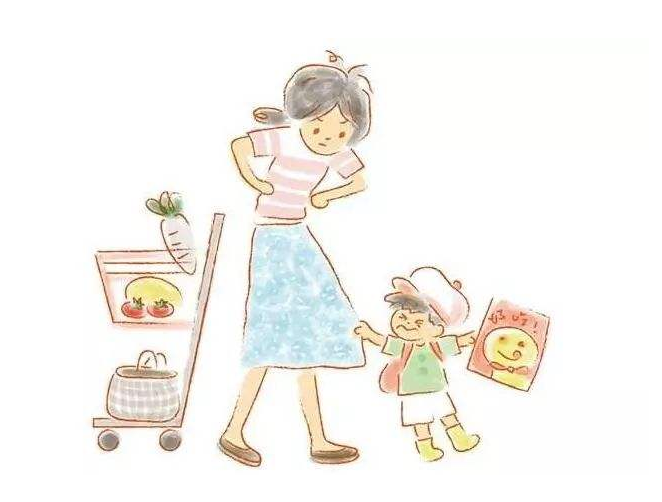Dialogue 1
Jingjing: Mark, have you watched any good movies or read any good books lately?
京晶:馬克,最近看過什么好電影,讀了什么好書嗎?
Mark: I don't really like the book I'm reading now, but I feel the need to power through it. Hey, I just discovered a TV series, Ducktales. Have you heard of it?
馬克:我不太喜歡現(xiàn)在讀的那本書,但是我感覺還是爭(zhēng)取讀完算了。嘿,我剛發(fā)現(xiàn)一部電視劇《唐老鴨》,你聽說過嗎?
Jingjing: Isn't that a cartoon?
京晶:那不是動(dòng)畫片嗎?
Mark: Yeah, it's a reboot of one from the 1980s and 90s. I watched that as a kid.
馬克:是的,它是80,90年代那一版的翻拍,我小時(shí)候看過。
Jingjing: Is the new version any good?
京晶:新版本好看嗎?
Mark: It's surprisingly good. I keep downloading more episodes. Pretty soon I'll have watched them all and will have to go back to that book.
馬克:出奇的好。我一直在下載更多劇集,很快我就要看完了。然后再回頭來讀書。
Jingjing: It sounds like you lack self control in some areas, Mark. Did your parents let you watch lots of TV when you were a kid?
京晶:馬克,聽起來你在某些方面缺少自制力呀。你小時(shí)候,父母允許你經(jīng)常看電視嗎?
Mark: Actually, we didn't have a TV in the house until I was 10 or 11. My parents wanted to keep me from getting hooked.
馬克:事實(shí)上,直到我10歲或11歲,我們家才有電視。我父母希望能阻止我別上癮。
Jingjing: How'd that work out for you?
京晶:那樣做管用嗎?
Mark: Um, as you can guess, I did a lot of binge-watching once we got a TV. But I never really got into TV like most people do, and had no patience for the commercials.
馬克:呃,正如你所猜測(cè),我們家一有電視,我就看得沒玩沒了。但是我從來沒有像大部分人那樣沉迷電視,并且我對(duì)廣告也沒什么耐心。
Jingjing: That's good. In a lot of homes, the TV is a member of the family.
京晶:那挺好。在很多家庭里,電視機(jī)就是家庭成員。
Mark: My parents raised me with good habits. They didn't tell me what to do though.
馬克:我父母用好習(xí)慣養(yǎng)育我。但他們不會(huì)告訴我應(yīng)該怎么做。
Jingjing: How's that?
京晶:那樣好嗎?
Mark: Well, I wish they'd have pushed me a little more to study toward a professional career. I might tell my own kid they're either going to be a doctor, a lawyer or an engineer.
馬克:好吧,我真希望他們能多推動(dòng)我去學(xué)習(xí)以進(jìn)入一個(gè)專業(yè)的職業(yè)領(lǐng)域。我可能會(huì)告訴我自己的孩子,他們要么成為一名醫(yī)生,律師,要么成為一名工程師。
Jingjing: Strictness skips a generation.
京晶:嚴(yán)格隔代遺傳了。
Mark: And so does self-discipline. Ha ha.
馬克:自律也是,哈哈。
New words : 習(xí)語短語
power through (something) 勉強(qiáng)堅(jiān)持做完不喜歡做的事
keep doing something you don't enjoy, just get it done
reboot 重做,重拍
a series of movies or TV shows that is remade a generation later
hooked 上癮
addicted
binge-watching 大量地做某事,此處指大量看電視
watching one TV series for several hours at a time, like getting through a whole season in one afternoon
(something) skips a generation 隔代遺傳
Someone's great grandmother has a trait, the grandmother doesn't, the mother does, the daughter doesn't, and the great granddaughter does.

Dialogue 2
Jingjing: Mark, do you think kids should listen to their parents about everything?
京晶:馬克,你覺得孩子應(yīng)該事事聽父母的嗎?
Mark: Hmm. It's good for kids to obey their parents. I've seen families where the parents kind of gave up on telling their kids what to do. That's pretty sad.
馬克:嗯,孩子服從父母是件好事。我見過一些家庭父母幾乎有點(diǎn)放棄告訴孩子該做什么。這還挺可悲的。
Jingjing: In China, families are pretty big, with lots of elders telling each kid what to do.
京晶:在中國(guó),都是大家庭,有很多老輩告訴每個(gè)孩子該做什么。
Mark: Yeah, that's good for children growing up.
馬克:是的,那對(duì)孩子的成長(zhǎng)還是有好處的。
Jingjing: What about young adults? Should they keep doing what their parents say?
京晶:那青年呢?他們應(yīng)該按父母說的做嗎?
Mark: If they agree with it. They should definitely listen.
馬克:如果他們贊同父母的觀點(diǎn)的話,他們當(dāng)然要聽了。
Jingjing: Parents should also set a good example, right?
京晶:父母也應(yīng)該樹立一個(gè)好榜樣,對(duì)吧?
Mark: Yes, that's crucial, especially during a kid's teenage years.
馬克:是的,這很關(guān)鍵,尤其是在孩子的青少年時(shí)期。
Jingjing: Right, I read a few interviews with top scorers on China's college entrance exam. Those students said their parents kept their phones turned off and read books at home during homework time after 4PM.
京晶:是的,我讀到過一些采訪中國(guó)高考狀元們的文章,那的學(xué)生們說他們的父母每天下午4點(diǎn)以后手機(jī)就關(guān)機(jī)了,家庭作業(yè)時(shí)間他們就在家讀書。
Mark: That's a good idea. A teenager can't really be expected to hit the books when the TV is on in the other room.
馬克:這是個(gè)好方法。另一間屋子里開著電視,一個(gè)青少年很難去認(rèn)真看書。
Jingjing: So, back to young-adulthood. Does parents' advice still matter once someone is out of college?
京晶:那,說回青年時(shí)期。一旦大學(xué)畢業(yè)以后,父母的建議還管用嗎?
Mark: Well, that's the usual stuff: buy a house, get married, have a baby. It all makes sense. Of course, no one should get pushed into the wrong home, even if parents mean well.
馬克:那就是那些常事了:買房,結(jié)婚,生娃。都有意義。當(dāng)然,就算父母初衷是好的。誰也不應(yīng)被強(qiáng)迫去嫁娶個(gè)不合適的人。
Jingjing: Right. I think parents do a good job of checking progress.
京晶:是的,我覺得父母在把握進(jìn)程方面能做的不錯(cuò)。
Mark: Yes, and hopefully young adults can be honest with their parents.
馬克:是的,理想化的情況是,年輕人們也能對(duì)父母坦誠(chéng)。
Jingjing: Exactly. In a relationship of honesty, someone can go to their parents freely for advice.
京晶:的確是。在一種坦誠(chéng)的關(guān)系中,一個(gè)人應(yīng)該能非常自由地向父母尋求建議。
Mark: I hope parents and their adult children can be friends as parents enter their senior years.
馬克:我希望當(dāng)父母年事已高時(shí),父母和成年的孩子之間能成為朋友。
Jingjing: That's ideal. Well, let's hope everyone gets along with their parents.
京晶:這是非常理想的狀態(tài)了。讓我們希望每個(gè)人都能和父母和睦相處。
Mark: And learns from them.
馬克:并且向它們學(xué)習(xí)。
New words : 習(xí)語短語
give up on (someone) 放棄某人,不抱希望
no longer care about someone, no longer believe in someone
set a good example 樹立榜樣
do something you want other people to do also (when they see you doing it, they will try it too)
crucial 非常重要的
important, necessary











